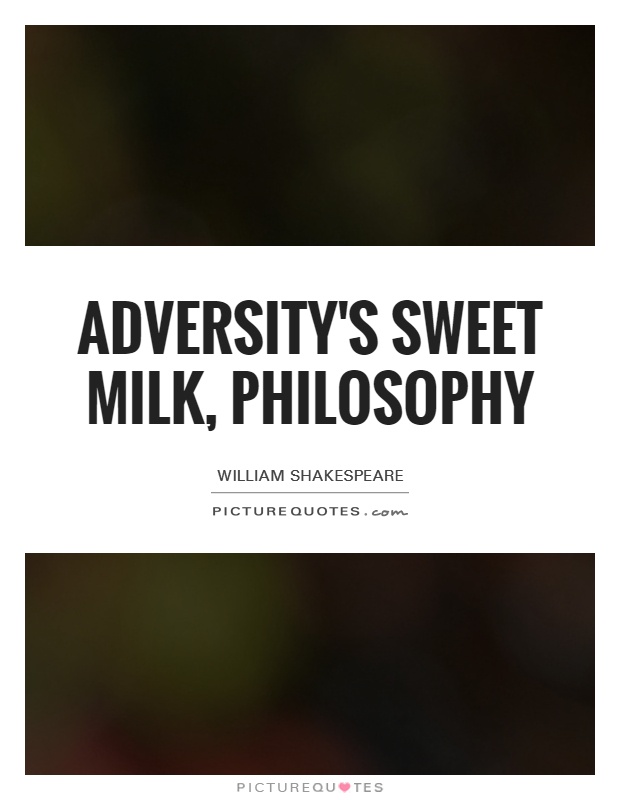Adversity's sweet milk, philosophy

Adversity's sweet milk, philosophy
In the world of William Shakespeare, adversity's sweet milk, philosophy is a recurring theme that is explored in many of his works. Shakespeare often delves into the idea that adversity, or challenges and hardships, can be a source of growth and wisdom. This concept is beautifully encapsulated in the famous line from his play "As You Like It": "Sweet are the uses of adversity, which, like the toad, ugly and venomous, wears yet a precious jewel in his head."In this line, Shakespeare suggests that even though adversity may appear unpleasant and difficult to endure, it can ultimately lead to valuable insights and personal growth. Adversity, like the toad with a precious jewel in its head, may hide a hidden treasure of wisdom and strength that can only be discovered through facing and overcoming challenges.
Throughout Shakespeare's plays, characters are often faced with adversity in various forms – whether it be betrayal, loss, or conflict. However, it is through these trials and tribulations that characters are able to learn important life lessons and develop a deeper understanding of themselves and the world around them.
One of the most famous examples of adversity leading to philosophical growth in Shakespeare's works is the character of Hamlet. Hamlet is faced with the adversity of his father's murder and the subsequent turmoil in the kingdom. Through his struggles and contemplations, Hamlet grapples with deep philosophical questions about life, death, and morality. His adversity ultimately leads him to a greater understanding of himself and the world, as he famously declares, "To be, or not to be: that is the question."












 Friendship Quotes
Friendship Quotes Love Quotes
Love Quotes Life Quotes
Life Quotes Funny Quotes
Funny Quotes Motivational Quotes
Motivational Quotes Inspirational Quotes
Inspirational Quotes